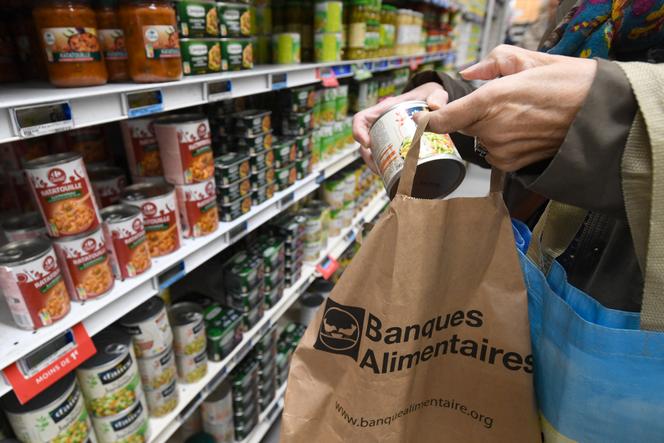


According to figures presented on Monday, February 26, at the Paris International Agricultural Show in Paris, France's leading food aid network has seen the number of people relying on food banks increase by almost 30% in three years (including +8% to 9% for the year 2023), reaching 2.6 million people.
The profile of those who rely on food banks is changing. While single people make up the majority (41%), followed by single-parent families (31%), the proportion of young people is increasing (+19% in five years), as is that of the working poor. Today, 17% of those relying on food banks have a job, the majority of whom (60%) have a permanent contract but earn less than the French minimum wage.
In addition to the social difficulties, there is also a health risk. To understand the impact of food insecurity on health, the network conducted a new study, the results of which were published on Monday. The study was carried out between October and December 2023 with the support of Action Contre la Faim (Action Against Hunger). They surveyed 140 people who attended health prevention workshops run by the network. The sample is modest but the study will be completed in 2024 and 2025 with other components, including interviews.
"Respondents to our survey are generally well aware of the link between food and health," said Barbara Mauvilain, head of the institutional relations department at the Fédération des Banques Alimentaires (Federation of Food Banks). "The majority eat home-cooked meals, and more than half eat vegetables more than twice a week, which brings them closer to the recommendations of the French national nutrition and health program."
One of the main concerns was that only a third of the survey's respondents ate only two meals a day or less. In addition to the issue of price, the lack of kitchen equipment at home was one of the obstacles to adopting good eating practices. Six percent of those consulted had no refrigerator, only 9% had a cooktop and 10% had no oven.
These results corroborate previous studies, notably a survey by the VRAC network – an organization that offers quality food at local distribution sites at fair prices – carried out in priority neighborhoods, published in November 2023, which reported the same barrier to nourishing food was linked to job insecurity and housing.
The food bank survey highlighted an over-representation of health problems among participants in its workshops. A quarter of respondents declared themselves to be in poor or very poor health, a third reported cardiovascular problems or being overweight or obese and 15% reported being diabetic, compared to 5% in the general population.
You have 47.4% of this article left to read. The rest is for subscribers only.
